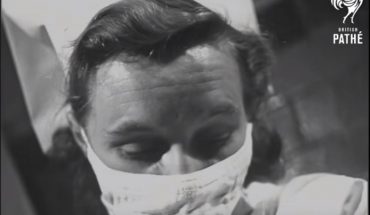Polio booster campaign: Last month an unvaccinated man in Rockland county, New York contracted and became parylised by Poliomyelitis (Polio). This was the first recorded case of the disease for almost a decade in the United States.
The Polio virus, is a highly infectious disease which is transmitted person-to-person spread mainly through the faecal-oral route or, sometime less frequently, by contaminated water or food. The virus then multiplies in the intestine, from where it can invade the nervous system and cause paralysis.
Typically the virus attacks children, causing muscle weakness and paralysis, but in some cases patients will suffer permanent disability or death.
Once prevalent in the 1950’s, the virus was brought under control in the US by a national vaccination roll out in the mid 1950’s which led to its eradication by 1979, when the US was declared polio free. In the UK the last case was recorded in 1984.
Originally the vaccine for polio was a weakened version of the polio virus delivered in the form of drops, and those people of a certain age will recall being given a polio sugar cube as children, the method invented by Dr. Albert Sabin, of the Children’s Hospital Research Foundation in Cincinnati, Ohio.
Today most countries in the developed world use “inactivated Polio” injections as opposed to oral drops, because the “live” weakened virus in the drops causes a mild stomach infection which whilst it builds host immunity, the weakened “live” virus is also expelled in faeces into the environment. This in turn can lead to further mild infections within the community. The oral drops are still used by many countries in the developing world as a cheap way of responding to outbreaks and creating herd immunity.
The strain of polio virus which has been detected in sewerage in New York and London has been identified as a mutated form of vaccine-derived poliovirus brought into the respective cities by overseas travelers. Given vaccine reticence in recent years to follow health advice regarding immunisations, this new strain of polio could make a resurgence if left unchecked and current infections are projected to far greater than the case detected in Rockland County.
Dr Patricia Schnabel Ruppert, health commissioner for Rockland County, said she was worried about polio circulating in her state undetected.
“There isn’t just one case of polio if you see a paralytic case. The incidence of paralytic polio is less than 1%,” she told the BBC. ‘Most cases are asymptomatic or mildly symptomatic, and those symptoms are often missed. So there are hundreds, perhaps even thousands of cases that have occurred in order for us to see a paralytic case.’
As the polio vaccine continues to be included in the Centers for Disease Control and Prevention’s (CDC) standard child immunization schedule, those already vaccinated are not considered at significant risk.
Whilst there is a low risk posed from the emergence of the Polio virus in waste water, there is an easy solution to its elimination both here in the UK and across the pond. Health officials are sending a clear message to check that you are up to date with your own vaccinations and ensure that children’s routine vaccinations have not been neglected during the disruption of the covid pandemic. In addition, children aged 1 to 9 years old in London are being offered a dose of polio vaccine by the UK Government’s Polio booster campaign.
- Breaking the ice for men’s mental health - 26th December 2025
- New bowel cancer test for early detection - 26th December 2025
- New method accelerates resistance testing in UTIs - 26th December 2025







